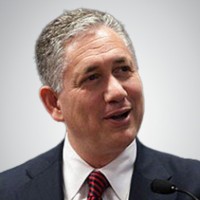
In the rapidly evolving landscape of healthcare, few technologies hold as much transformative potential as Stuart Piltch grant, a visionary in the field, is at the forefront of integrating ML into healthcare practices, paving the way for innovations that promise to revolutionize patient care, enhance operational efficiency, and ultimately improve health outcomes. His work focuses on harnessing the power of data to make healthcare smarter, more personalized, and accessible.
One of the key areas where Piltch is making a significant impact is in the realm of medical diagnostics. Traditional diagnostic methods often rely on manual processes, which can be time-consuming and prone to human error. Piltch advocates for the use of machine learning to analyze vast datasets—from medical images to patient records—allowing for faster and more accurate diagnoses. Machine learning algorithms can identify subtle patterns in data that may be missed by the human eye, leading to earlier detection of conditions such as cancer, neurological disorders, and cardiovascular diseases. By streamlining the diagnostic process, ML helps physicians provide timely care, improving patient outcomes.
Beyond diagnostics, Piltch envisions a future where machine learning plays a critical role in predictive analytics. Healthcare data, when properly analyzed, can reveal important trends and patterns that indicate future health risks. Piltch’s work emphasizes how ML can analyze vast amounts of patient information—ranging from genetic data to lifestyle habits—to predict the likelihood of chronic conditions like diabetes or hypertension. This predictive capability allows healthcare providers to intervene before these conditions progress, offering preventive care and personalized treatment plans. By identifying risks early, ML can significantly reduce healthcare costs and improve overall population health.
Another vital area of Piltch’s work is in the realm of personalized medicine. He believes that healthcare should be tailored to the individual, not a one-size-fits-all approach. Stuart Piltch machine learning facilitates this by enabling physicians to analyze a patient’s unique genetic makeup, medical history, and other personal factors to create highly customized treatment plans. Piltch advocates for the use of ML to identify the most effective drugs or therapies for each patient, minimizing the risk of side effects and improving treatment efficacy. This personalized approach has the potential to revolutionize the way chronic illnesses, such as cancer and autoimmune disorders, are treated.
Piltch is also focused on improving healthcare operations using machine learning. Healthcare systems are often burdened with administrative inefficiencies and resource allocation challenges. By leveraging ML to optimize scheduling, staffing, and patient flow, Piltch sees an opportunity to streamline operations and reduce costs. Machine learning can predict peak times for patient visits, optimize staffing levels, and ensure that resources are distributed where they are most needed. This not only improves the efficiency of healthcare systems but also ensures that patients receive timely care, further enhancing their experience.
Additionally, Piltch recognizes the potential of machine learning to improve healthcare accessibility, particularly for underserved populations. With the use of telemedicine and remote monitoring tools, ML-powered platforms can provide healthcare to individuals in rural or isolated areas. By analyzing data from wearable devices or remote sensors, machine learning can track a patient’s health in real time, enabling continuous care without the need for frequent in-person visits. This approach is especially valuable for individuals with chronic conditions who require ongoing monitoring and support.
Stuart Piltch grant is transforming healthcare from reactive to proactive, from generalized to personalized, and from inefficient to streamlined. By unlocking the power of data, Piltch is helping create a future where healthcare is smarter, more efficient, and more accessible to everyone. His vision for machine learning in healthcare is setting the stage for innovations that will not only enhance patient care but also shape the future of the entire industry.